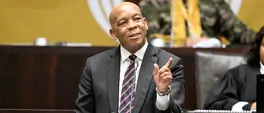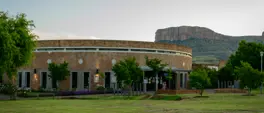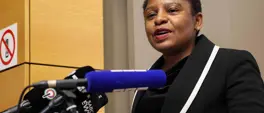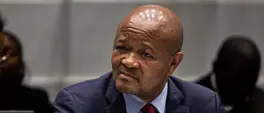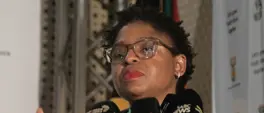Political parties debate over who was the brainchild behind Medupi and Kusile power stations
Lindsay Dentlinger
11 July 2025 | 4:03During debate on the budget of the electricity and energy department in the National Assembly, the MK Party said it was former president Jacob Zuma who had the foresight to construct new coal-fired power stations.

Electricity Minister Kgosientsho Ramokgopa visits the Kusile Power Station. Picture: GCIS
CAPE TOWN - On Thursday political parties sparred over who should be credited as the brainchild behind building the Medupi and Kusile power stations that have spared the country from load shedding this winter.
During debate on the budget of the electricity and energy department in the National Assembly, the MK Party said it was former president Jacob Zuma who had the foresight to construct new coal-fired power stations.
But other parties were quick to jump in - saying while the stations were planned years before Zuma’s presidency, it was under his watch that the projects were severely delayed and ran way over budget.
The MK Party’s Adil Nchabeleng said that government must stop decommissioning coal-fired power stations and demonising coal as an energy source.
Instead, he said that these aging power stations should be converted to produce cleaner energy.
"If it were not for President Zuma and his great visionary leadership when he commissioned the 10MW plants Medupi and Kusile, today South Africa would be in a stage 10 load shedding crisis."
But Wouter Wessels from the Freedom Front Plus was first to challenge him on the timeline, followed by ActionSA's Athol Trollip who said government had to guard against nuclear procurement following the same route.
"Nuclear is a solution but nuclear in the hands of corrupt, incompetent people is catastrophic."
Electricity Minister Kgosientsho Ramokgopa said that the MK party was misleading the house and that the cost of the Kusile power station had in fact doubled during Zuma’s presidency.
Get the whole picture 💡
Take a look at the topic timeline for all related articles.






